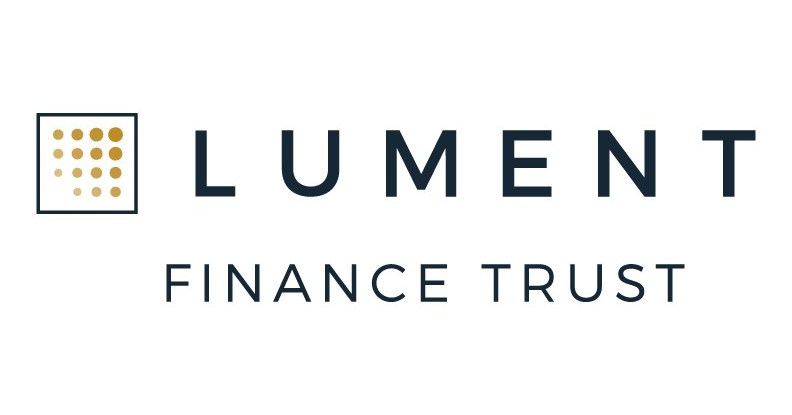Finance
A Better Way for Finance (and Others) to Handle Missing Data

There are data about practically everything these days, and they can be used to try to answer any number of questions. Do clinical trials really show a drug works? Can surveys really signal who’s going to win the next election? Can a financial manager really predict a winning portfolio?
As powerful as data are, adjustments made for missing information—the people who drop out of drug trials, the questions people don’t answer in polling, incomplete corporate financial reports—may dramatically skew the results of predictive models, according to University of Bonn’s Joachim Freyberger and Björn Höppner (a PhD student), Washington University in St. Louis’s Andreas Neuhierl, and Chicago Booth’s Michael Weber.
They propose an improved method for handling missing data, having tested it against two popular existing approaches in a practical application of data, namely predicting stock returns. The results indicate that their method provides a consistent edge.
To compare the three methods, the researchers obtained a database of US stock and balance-sheet data from 1978 to 2021. The data set started out with 2.4 million observations, or rows, each with 82 variables covering trading volume, accounting information, momentum indicators, and the like. As is the case with many data sets, it wasn’t complete: some rows didn’t have values for all 82 variables.
The first of the two widely used methods, the “complete cases” approach, drops all incomplete observations, although this violates a cardinal rule of data analysis: “Thou shalt not throw data away.” This approach required that the researchers exclude rows of data where any information was missing—for example, if a stock was missing trading volume for one month, the complete cases method required dropping all the data collected for that stock that month. After the researchers did this, just 10 percent of the data remained. Most of the dropped instances were missing values for five variables or fewer.
The other well-known method, “mean imputation,” keeps all of the observations but creates biases. It replaces missing values with an average of all the data set’s existing data points for a given variable and month. But the missing data might include extreme values that could make a significant difference in prediction models. For example, say there’s a housing database, but most of the high-end houses in it are sold by a realtor who never lists the square footage. If analysts replaced the missing data with the average square footage of all housing, they would most likely undershoot and skew their model’s predictions of market values.

Finance
Lument Finance Trust, Inc. Declares Quarterly Cash Dividends for its Common and Preferred Stock

NEW YORK, June 20, 2025 /PRNewswire/ — Lument Finance Trust, Inc. (NYSE: LFT) (“LFT” or the “Company”) announced the declaration of a cash dividend of $0.06 per share of common stock with respect to the second quarter of 2025. The dividend is payable on July 15, 2025, to common stockholders of record as of the close of business on June 30, 2025.
The Company also announced the declaration of a cash dividend of $0.4921875 per share of 7.875% Cumulative Redeemable Series A Preferred Stock. The dividend is payable on July 15, 2025 to preferred stockholders of record as of the close of business July 1, 2025.
James P. Flynn, Chief Executive Officer, said, “We approached this quarter’s dividend decision with thoughtful deliberation and a clear-eyed view of our near-term earnings outlook. We determined it was prudent to adjust the dividend to reflect present realities, preserve book value and support our long-term earnings potential. Our focus remains on maximizing our flexibility, in order to achieve positive asset management outcomes and responsibly manage our liquidity. We believe these efforts will best position us to create long-term value for our shareholders.”
About LFT
LFT is a Maryland corporation focused on investing in, financing and managing a portfolio of commercial real estate debt investments. The Company primarily invests in transitional floating rate commercial mortgage loans with an emphasis on middle-market multi-family assets. LFT is externally managed and advised by Lument Investment Management, LLC, a Delaware limited liability company.
Additional Information and Where to Find It
Investors, security holders and other interested persons may find additional information regarding the Company at the SEC’s Internet site at http://www.sec.gov/ or the Company website www.lumentfinancetrust.com or by directing requests to: Lument Finance Trust, 230 Park Avenue, 20th Floor, New York, NY 10169, Attention: Investor Relations.
Forward Looking Statements
Certain statements included in this press release constitute forward-looking statements intended to qualify for the safe harbor contained in Section 27A of the Securities Act of 1933, as amended, and Section 21E of the Securities Exchange Act, as amended. Forward-looking statements are subject to risks and uncertainties. You can identify forward-looking statements by use of words such as “believe,” “expect,” “anticipate,” “project,” “estimate,” “plan,” “continue,” “intend,” “should,” “may,” “will,” “seek,” “would,” “could,” or similar expressions or other comparable terms, or by discussions of strategy, plans or intentions. Forward-looking statements are based on the Company’s beliefs, assumptions and expectations of its future performance, taking into account all information currently available to the Company on the date of this press release or the date on which such statements are first made. Actual results may differ from expectations, estimates and projections. You are cautioned not to place undue reliance on forward-looking statements in this press release and should consider carefully the factors described in Part I, Item IA “Risk Factors” in the Company’s Annual Report on Form 10-K for the year ended December 31, 2024, which is available on the SEC’s website at www.sec.gov, and in other current or periodic filings with the SEC, when evaluating these forward-looking statements. Forward-looking statements are subject to substantial risks and uncertainties, many of which are difficult to predict and are generally beyond the Company’s control. Except as required by applicable law, the Company disclaims any intention or obligation to update or revise any forward-looking statements, whether as a result of new information, future events or otherwise.
SOURCE Lument Finance Trust, Inc.
Finance
Investors in Apollo Commercial Real Estate Finance (NYSE:ARI) have seen returns of 30% over the past three years

As an investor its worth striving to ensure your overall portfolio beats the market average. But if you try your hand at stock picking, you risk returning less than the market. We regret to report that long term Apollo Commercial Real Estate Finance, Inc. (NYSE:ARI) shareholders have had that experience, with the share price dropping 12% in three years, versus a market return of about 57%.
With that in mind, it’s worth seeing if the company’s underlying fundamentals have been the driver of long term performance, or if there are some discrepancies.
AI is about to change healthcare. These 20 stocks are working on everything from early diagnostics to drug discovery. The best part – they are all under $10bn in marketcap – there is still time to get in early.
While markets are a powerful pricing mechanism, share prices reflect investor sentiment, not just underlying business performance. One way to examine how market sentiment has changed over time is to look at the interaction between a company’s share price and its earnings per share (EPS).
Apollo Commercial Real Estate Finance has made a profit in the past. On the other hand, it reported a trailing twelve months loss, suggesting it isn’t reliably profitable. Other metrics may better explain the share price move.
It’s quite likely that the declining dividend has caused some investors to sell their shares, pushing the price lower in the process. The revenue decline, at an annual rate of 19% over three years, might be considered salt in the wound.
You can see how earnings and revenue have changed over time in the image below (click on the chart to see the exact values).
It’s probably worth noting that the CEO is paid less than the median at similar sized companies. But while CEO remuneration is always worth checking, the really important question is whether the company can grow earnings going forward. So we recommend checking out this free report showing consensus forecasts
As well as measuring the share price return, investors should also consider the total shareholder return (TSR). The TSR is a return calculation that accounts for the value of cash dividends (assuming that any dividend received was reinvested) and the calculated value of any discounted capital raisings and spin-offs. Arguably, the TSR gives a more comprehensive picture of the return generated by a stock. As it happens, Apollo Commercial Real Estate Finance’s TSR for the last 3 years was 30%, which exceeds the share price return mentioned earlier. And there’s no prize for guessing that the dividend payments largely explain the divergence!
Finance
Ísfélag hf. participation in financing of Austur Holding AS in connection with Kaldvik AS share capital increase

Ísfélag hf. (the “Company”), which holds a 29.3% stake in Austur Holding AS (“Austur”), hereby announces its participation in the financing of Austur in relation to Austur’s subscription in a share capital increase of Kaldvik AS, following the approval of an extraordinary general meeting of Kaldvik AS on 19 June 2025.
Kaldvik AS, listed on Nasdaq First North Growth Market and Euronext Growth in Oslo, announced on 5 June 2025 the results of a private placement of 38,011,500 new shares for a total subscription amount of NOK 532 million, equivalent to approximately EUR 46.2 million. Austur was allocated 27,045,027 shares, representing approximately 71.2% of the total allocation, for a total subscription amount of NOK 378.6 million, or approximately EUR 33 million. The allocation of new shares was i.a. subject to approval by the extraordinary general meeting of Kaldvik AS. Furthermore, following the private placement, the purchase by Austur of an additional 860,000 shares in Kaldvik AS was announced on 10 June 2025.
Following shareholder approval of the share capital increase in Kaldvik AS on 19 June 2025, Austur is obliged to settle its allocated portion of the new shares pursuant to the private placement. In accordance with a financing agreement between Austur and its shareholders, Ísfélag will provide financing in connection with the aforementioned transactions in the amount of NOK 341 million (approximately EUR 29.7 million), comprising an equity contribution and in the form of convertible shareholder loans. Following these transactions Austur shareholding in Kaldvik AS will be a 57.35% but was previously 54,06%.
The investment forms part of the Company’s strategy to diversify its revenue streams and to support the continued development of Kaldvik AS.
-

 Culture1 week ago
Culture1 week agoA Murdered Journalist’s Unfinished Book About the Amazon Gets Completed and Published
-

 Education1 week ago
Education1 week agoWhat Happens to Harvard if Trump Successfully Bars Its International Students?
-

 Arizona2 days ago
Arizona2 days agoSuspect in Arizona Rangers' death killed by Missouri troopers
-

 News1 week ago
News1 week agoTrumps to Attend ‘Les Misérables’ at Kennedy Center
-

 World1 week ago
World1 week agoSudan’s paramilitary RSF say they seized key zone bordering Egypt, Libya
-

 Technology1 week ago
Technology1 week agoGoogle is shutting down Android Instant Apps over ‘low’ usage
-

 News1 week ago
News1 week agoElon Musk says some of his social media posts about Trump 'went too far'
-

 Technology1 week ago
Technology1 week agoMeta’s new AI video tool can put you in a desert (or at least try to)














